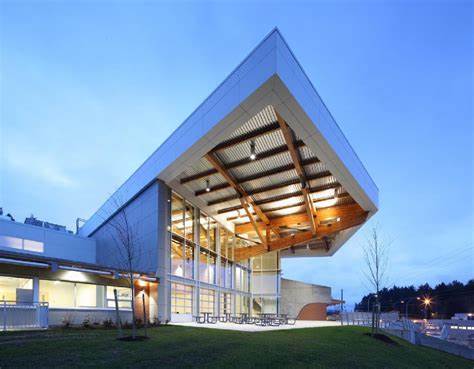For both domestic and foreign investors, real estate investing in Ghana has become one of the most lucrative and promising business opportunities. Ghana offers a wealth of prospects in the real estate market due to its steadily expanding urban population, rising housing demand, and stable economic climate. Ghana has a booming market that can provide substantial profits, regardless of your goals: capital appreciation, rental income, or commercial real estate investments.
Why Invest in Ghana’s Real Estate Market?
1. Strong Economic Growth
With persistent GDP growth propelled by industries like oil, agriculture, and services, Ghana has continuously maintained one of Africa’s fastest-growing economies. The nation is a desirable place to invest in real estate because of its investor-friendly policies and stable political climate.
2. Urbanization and Housing Demand
The Ghana Statistical Service reports that the number of people living in urban areas is growing quickly, especially in Accra, Kumasi, and Takoradi. Opportunities for developers, landlords, and real estate investors have arisen as a result of the housing shortage.
3. High Rental Yields
Rental yields in Ghana’s major cities, particularly Accra, range between 8% to 12%, which is higher compared to many other African countries. This makes real estate a highly profitable investment for those looking for consistent rental income.
4. Government Incentives for Investors
In order to entice investors into the housing industry, the Ghanaian government has implemented a number of incentives, such as tax breaks and measures to lower the housing deficit. Foreign investment is facilitated by the Ghana Investment Promotion Centre (GIPC), which offers investors security and tax benefits.
5. Growing Middle Class and Expatriate Community
With increasing disposable incomes and a growing expatriate community working in the oil, mining, and financial sectors, the demand for high-quality residential and commercial properties has surged in Ghana.
Best Cities for Real Estate Investment in Ghana
1. Accra
Because of the strong demand for both residential and commercial real estate, the capital city is the preferred destination for real estate investors. High-end residences in desirable neighborhoods including Labone, East Legon, Cantonments, and Airport Residential draw wealthy people and expatriates.
2. Kumasi
Known as the “Garden City,” Kumasi is Ghana’s second-largest city with a booming real estate market. Its strategic location as a major commercial hub makes it a great location for both residential and business properties.
3. Takoradi
With the growth of Ghana’s oil and gas industry, Takoradi has seen increased demand for real estate. Investors can explore opportunities in both residential and commercial real estate in this fast-developing coastal city.
4. Tema
As an industrial and port city, Tema offers affordable real estate opportunities with significant potential for growth. With ongoing infrastructure development, the city is becoming an attractive option for real estate investment.
Types of Real Estate Investments in Ghana
1. Residential Properties
Investing in apartments, townhouses, and single-family homes is a lucrative option due to high demand for housing, especially in urban centers. Short-term rental options like Airbnb have also become increasingly popular.
2. Commercial Properties
Office spaces, shopping malls, and retail centers in major cities are in high demand. With the rise of multinational companies setting up operations in Ghana, commercial real estate continues to be a profitable sector.
3. Land Investments
Purchasing land in Ghana, particularly in developing areas, can be a great long-term investment. Due to the country’s rapid urbanization, land values continue to appreciate significantly over time.
4. Industrial Properties
With Ghana’s growing manufacturing and industrial sectors, warehouses and factory spaces are increasingly sought after. Areas like Tema and Takoradi offer great potential for industrial real estate investments.
Challenges in Ghana’s Real Estate Market
1. High Property Prices in Prime Areas
While Accra and other key cities offer profitable investment opportunities, property prices in prime areas can be significantly high, making entry into the market challenging for some investors.
2. Land Ownership Issues
Land acquisition in Ghana can be complicated due to disputes and unclear documentation. It is essential to conduct thorough due diligence and work with experienced real estate lawyers before purchasing land.
3. Infrastructure and Utility Concerns
Some parts of Ghana still experience challenges with infrastructure, such as roads, electricity, and water supply. Investors should carefully assess the location and ensure proper access to essential services before investing.
How to Start Investing in Ghana’s Real Estate
1. Research the Market
Before making any investment, conduct in-depth research on market trends, property values, and high-growth areas.
2. Work with Real Estate Professionals
Engaging experienced real estate agents, property managers, and lawyers can help you navigate the complexities of property transactions in Ghana.
3. Secure Financing
Consider available financing options such as bank loans, mortgage plans, or partnerships with other investors.
4. Verify Documentation
Ensure all property documents, such as land titles and building permits, are legitimate before making a purchase.
5. Consider Rental Income Opportunities
If purchasing rental property, evaluate the potential rental income and target market to maximize returns.
Conclusion
Ghana offers both domestic and international investors a multitude of real estate investment opportunities. The industry is still thriving due to a growing population, rising housing demand, and government assistance. But success depends on thorough preparation, research, and collaborating with the right experts. Ghana’s real estate market continues to be a viable financial option, regardless of your goals—buying, building, or renting homes.
Further Reading and External Resources
- Ghana Investment Promotion Centre (GIPC): https://www.gipcghana.com
- Lands Commission Ghana: https://www.lc.gov.gh
- Ghana Real Estate Developers Association (GREDA): https://www.gredaonline.com
By leveraging these resources and staying informed about the latest trends, you can make strategic real estate investments in Ghana that yield long-term profits.
